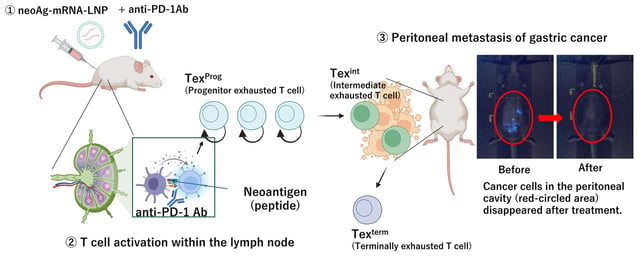Overview
- The lipid nanoparticle vaccine encodes three linked neoantigen minigenes from the YTN16 mouse gastric cancer line and elicits higher frequencies of neoAg-specific cytotoxic T cells than dendritic cell approaches.
- In therapeutic studies, vaccination alone eradicated tumors in all treated mice and combined administration with anti-PD-1 therapy further expanded both progenitor-exhausted (Texprog) and intermediate exhausted (Texint) T cell subsets for sustained antitumor effects.
- The vaccine demonstrated both protective and therapeutic activity against peritoneal metastases, preventing tumor establishment after intraperitoneal challenge and reducing growth in mice with established abdominal tumors.
- Mechanistic analyses reveal that expanding Texprog cells replenishes Texint effectors under checkpoint blockade, providing a cellular basis for prolonged tumor control.
- Translational progress will depend on refining computational and laboratory methods to identify true neoantigens and on conducting human trials to establish safety and efficacy.
